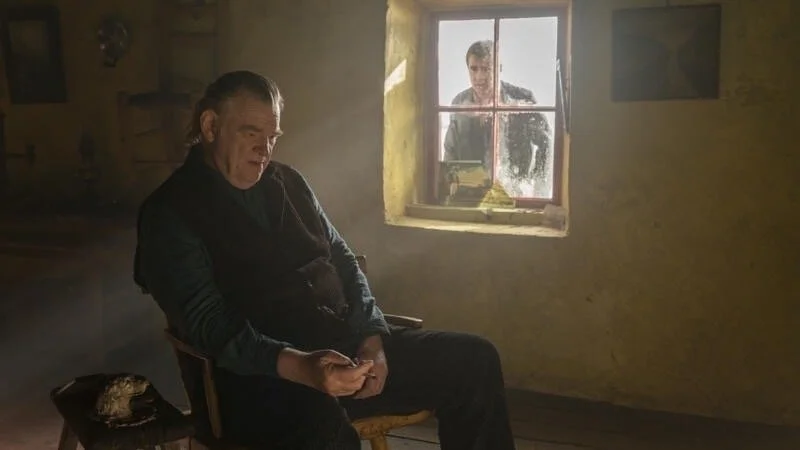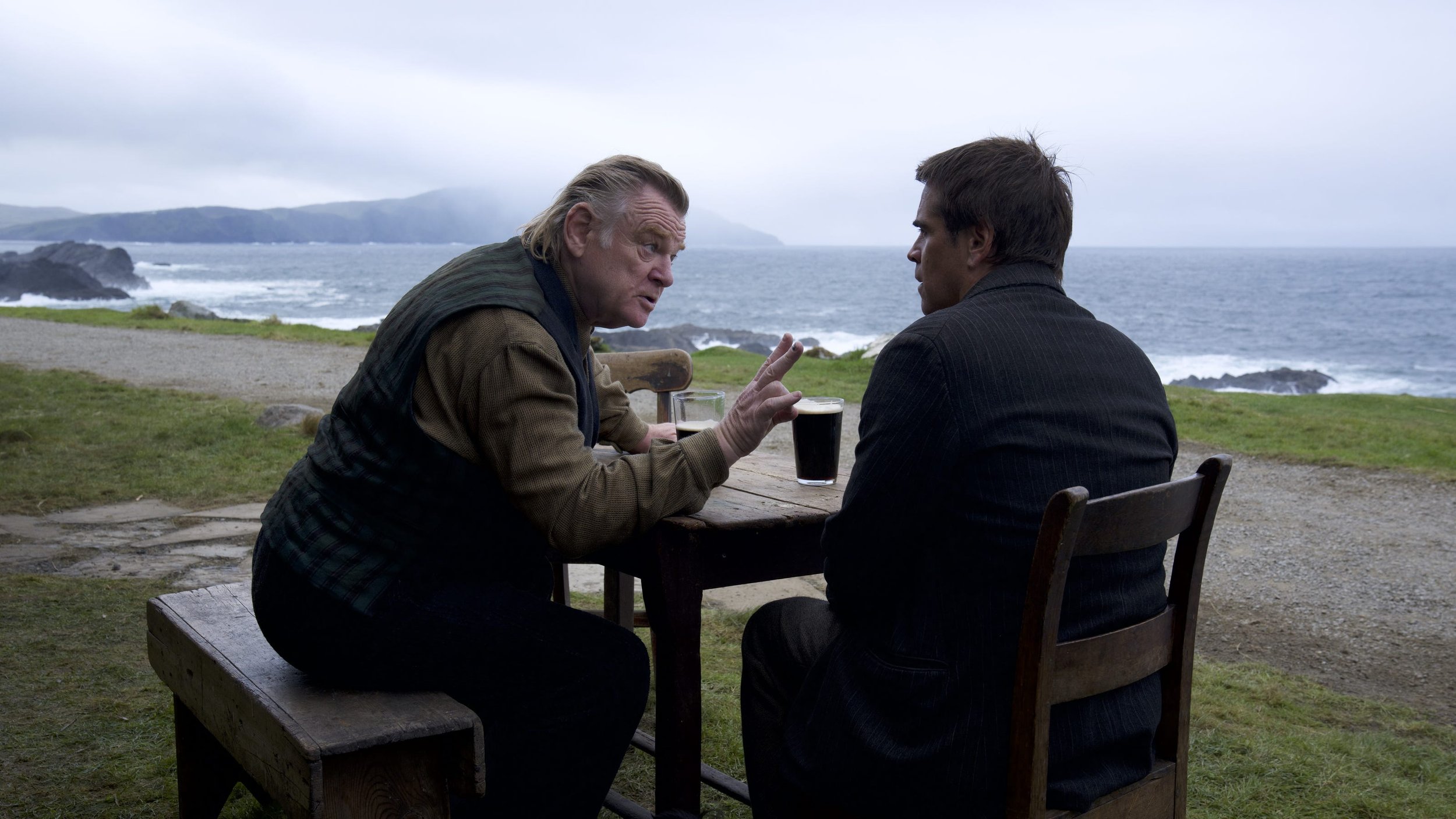Perhaps my ruthlessness is showing but after hearing the premise of Martin McDonagh’s fable The Banshees of Inisherin, I doubted a two-hour film about the end of a friendship would hold my attention. When it's over, it's over, right? After all, Colm (Brendan Gleeson) is simply bored of Pádraic (Colin Farrell), the guy he meets for a pint at 2pm every day without fail.
Now here’s the thing. This isn't present-day London or whatever, full of useful distractions and endless possibilities. It's a fictitious, beguiling yet desolate slab of land in the Aran islands of 1923. Round those parts, losing your one and only friend is the most brutal bereavement.
Meanwhile, prying eyes and the whispers of townsfolk only magnify Pádraic's sense of rejection. Aside from dutiful sister Siobhán (Kerry Condon), little donkey Jenny and sharing the odd bottle with not-so-simple Dominic (Barry Keoghan), his life is solitude.
For all its beauty, there is a darkness that lingers in the air on Inisherin, a foreboding wind drifting over the lake where it's rumoured someone took their own life. The spectral Mrs McKormick (Sheila Flitton) appears like a cross between a harbinger and a banshee, as she foretells more death. In the distance, civil war rages between two sides who were on the same side just one year earlier. An apt backdrop for this acrimonious separation.
There’s an obvious question here, right: why the sudden and drastic decision to part ways? On the surface, Colm wants to spend more time on his music instead of chatting bollocks with Pádraic. But through solemn eyes and hints of despair in the confession box, it's clear that Colm is following a conviction far greater than time efficiency.
No, this is about his mortality. His legacy too perhaps, as he tries to write a song for the ages (which has the same title as this film). A defining work that will outlast him. As we see, he is willing to go to extreme lengths to succeed. And even further to keep his word, an unspeakable act of self-harm for a musician whose hands are his lifeblood.
Pádraic goes through his stages of grief and, after an absurd and tragic turn of events, becomes vengeful. It’s unexpected to say the least but this wouldn’t be a McDonagh script without a wicked surprise or two.
In his hands, ridiculous can be hugely entertaining as we know. Remember one of his standout plays, The Lieutenant of Inishmore, with the IRA hitman who loves his cat and wouldn't hesitate to chop off your nipple? The dialogue is full of that trademark sardonic wit and a penchant for the macabre.
The writer/director calls this his break-up film, which feels both neat and enticing. How often do we get to see two male characters contend with the absence of one another like this? The Banshees of Inisherin unravels complex emotions, sifting subtle nuance from the wreckage of this relationship.
Although it’s undeniably funny, McDonagh doesn't shy away from the sadness of the situation nor a character's capacity for cruelty. Consider how Pádraic destroys what he once was, a nice guy, in a desperate attempt to salvage a friendship before he torches it. Loss can corrupt the soul.
For all its momentum, I felt a stillness and brooding intensity to the film that really took hold. We are trudging around that island, trying to make sense of what's happened, dealing with the fallout. The cinematography of Ben Davis (Layer Cake, Eternals, Three Billboards in Ebbing, Missouri) is incredible, rendering the straits and acute tonality of McDonagh's world like a portrait artist.
From the craggy cliffs, piled stone walls, celestial skies and majestic greens of Inishmore – where Padriac's house is – to the rugged coastline of Achill where the film reaches its open-ended conclusion. Davis took reference points such as John Ford westerns and paintings of the 17th-century Dutch masters to give us a heightened sense of person and place in unison.
Farrell is one of the most underrated actors in Hollywood, a guy whose earlier hellraiser image and occasional duds (Total Recall, anyone?) have overshadowed his gift for subtlety and his ability to provoke empathy. Consider his range over time: Tigerland, Minority Report, The Recruit, Miami Vice, In Bruges, True Detective, The Lobster, The Batman. And the chemistry with Gleeson is effortless; there's this innate rhythm to their back and forth. I would love to see them as rival gangland bosses or something in the third and final part of a trilogy.
Two other actors really deserve plaudits. Condon (for being able to convey Siobhán's steel and her melancholy, her yearning for something beyond this island. And Keoghan (Dunkirk, Calm with Horses, The Killing of Sacred Deer) is a mercurial talent. He takes a good part and makes it great, delivering unforgettable lines with a fullness of being that always makes us feel more than one thing at one time. That scene with Siobhán by the lake will break your heart.




